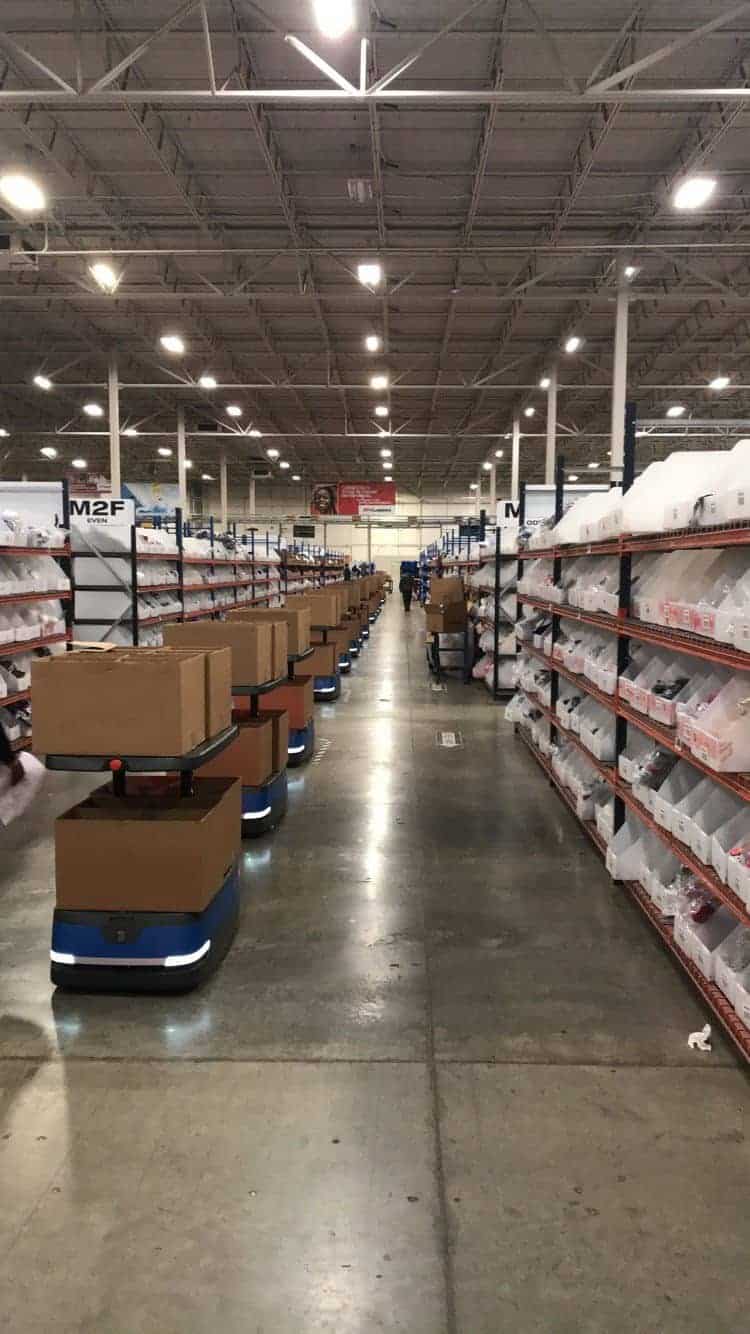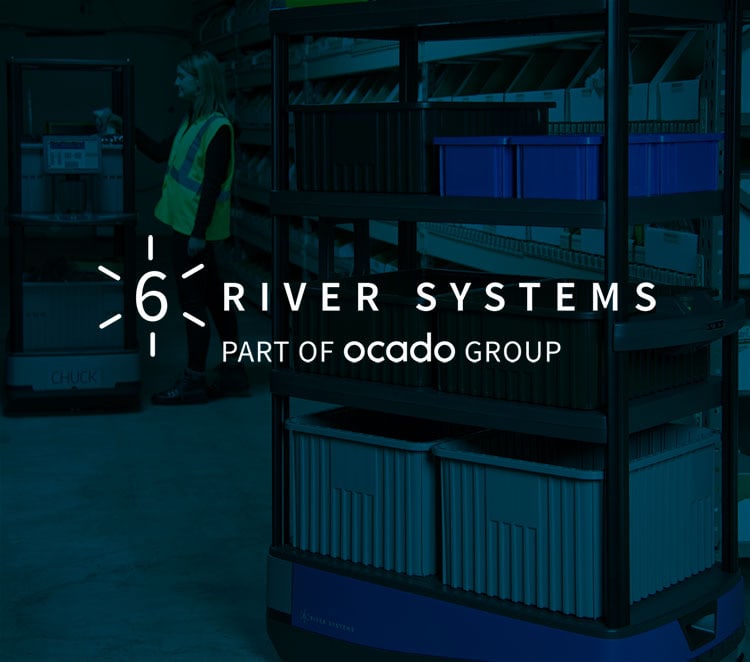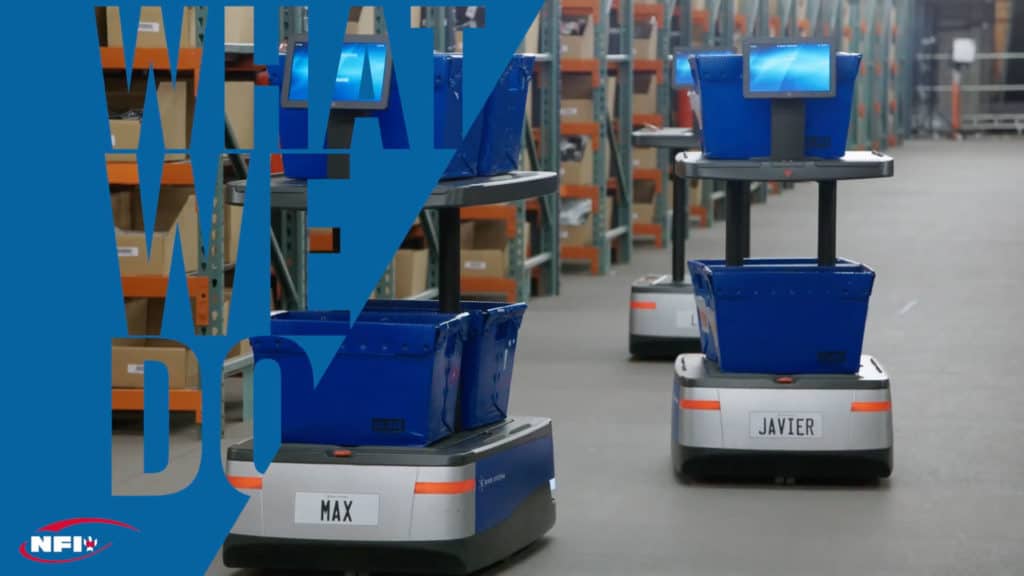By Eran Frenkel

Eran Frenkel
Buying the right warehouse automation for your peak season is like buying the right car. Most of the time you’ll be driving the speed limit, but occasionally you’ll need to hit the gas. If your business is sensitive to e-commerce and retail peaks (such as Black Friday and Cyber Monday), you’ll want to make sure your warehouse automation equipment doesn’t break down exactly when you need it most.
When it comes to managing multiple peak seasons for our various customers, we take nothing for granted. We’ve recruited the most talented engineers and built a diverse Technical Operations (TechOps) function. My team of 20+ engineers come from tech powerhouses such as Amazon, Microsoft and the U.S. Navy, and elite engineering programs including Columbia, Dartmouth and Duke. TechOps is working around-the-clock to make sure our customers have a successful peak.
Here’s how we prepare our customers for peak:
1. Audit all components of our solution
Before our customers step on the gas for peak, we will conduct extensive, multi-faceted audits of all the components of the deployed system including the following:
- Number of robots: We will re-evaluate the latest peak volume forecast to determine if sites have enough Chucks, our collaborative mobile robot. Instead of calling the temp agency, our customers may rent more robots just for peak to double their productivity.
- Preventative maintenance: Much like you would winterize your car, we will perform a multi-point inspection on each deployed robot to guarantee our fleets are in tip-top shape for peak.
- Software infrastructure: We will ensure that each one of the SaaS components that support customer sites is up to date, stable and can scale to support peak throughput. Our cloud infrastructure allows us to respond to customer needs quickly and provide the stability sites can rely on.
Outcome – Audits will result in a site-specific assessment that will determine if customer is ready for peak. We will share the finding with our customers and collaborate to quickly address gaps.
2. Pretend it’s peak (for two hours)
We’ve done the audits, addressed gaps, and now it’s time to ensure the reliability and stability of our system in real, peak-like conditions. So we will go on site and operate at peak throughput for two hours. Luckily most sites do this stress-testing already, so in best-case scenarios, we plug ourselves into existing tests.
Outcome – The result of the stress test will be recommendations and improvement steps to guarantee sites operate at maximum performance during peak.
3. Host Chuck training refreshers

A line of Chucks stand ready to work.
We know that during peak most of our sites hire temp employees who will enter a warehouse with robots for the first time ever. Although associates can learn how to use Chuck in a matter of minutes, our customer success managers will be onsite before and during peak to ensure training runs smoothly.
Outcome – Associates, pickers, site managers and maintenance staff will know how to use Chuck, monitor performance, make basic repairs and confidently be able to train others.
4. Provide the best version of our system for your peak
When peak finally arrives, our team will make sure customer sites are fully operational and hitting performance targets. Here are some of the mechanisms we will use to secure success:
- Early alerting: We’ve deployed an early alerting system that predicts site outages, so we can proactively prevent them without causing any downtime.
- War room: We will continuously monitor our sites’ performance throughout peak. We’ll go through alerts, outages and key performance indicators, and share any opportunities we identify to improve rates.
- Streamlined support: We’ve launched a brand new support portal that simplifies issue reporting and diagnostics. If we do have any issues, 6 River engineers are on call 24/7 to quickly fix them. We’ll also dispatch our engineers across customer sites to either be onsite or in a hub near multiple sites, so they will be able to act quick if and when issues arise.
Outcome – Providing 100% system availability throughout peak. However, our work doesn’t end when peak ends. Starting Christmas, when peak comes to a close, our team will collect lessons learned to create an even better peak readiness plan for next year. We succeed when our customers succeed!
Eran Frenkel is the Director of Technical Operations at 6 River Systems.
How are you planning peak? What issues do you run into? Get a second opinion on your peak preparedness by scheduling a quick call with us.



